As a guitarist, songwriter, producer, and gear nerd, Mansoor’s influence in pioneering the “djent” sound has been tremendously important in not just reimagining the progressive metal idiom for a new generation, but the very equipment and methods used to make it. Periphery’s mix of churning polyrhythms, pummeling guitar riffs, textured ambience, and unexpected melodic elements have even earned the band the distinction of Grammy nomination.
While the music Periphery makes can be incredibly technical and is undeniably future-facing, it’s rooted in a style of metal with a rich heritage. Periphery takes a classic form and twists it into something unique and ultimately special by fusing it with elements of modernity; it’s a philosophy that’s defined Mansoor’s world as not just a musician, but as a deeply passionate auto enthusiast, entrepreneur, burgeoning watch collector, and restless dreamer that can’t seem to help but turn his many hobbies into constructive pursuits. In fact, most of Mansoor’s favorite things as an enthusiast are found at the intersection of a classic form factor and modernity in some way: His favorite car is his Porsche 911.2 GT3 Touring, his favorite watches are a steel Rolex Daytona ref.116500 and a Grand Seiko SLGA007 Spring Drive “Lake Suwa” Anniversary Edition, and his most recent signature model guitar from Jackson is a decidedly traditional looking (but lowkey very hot-rodded) vamp on the Fender Strat (Jackson wants you to call it a SoCal, though). All of these things bridge the gap between eras in their own brilliant ways.
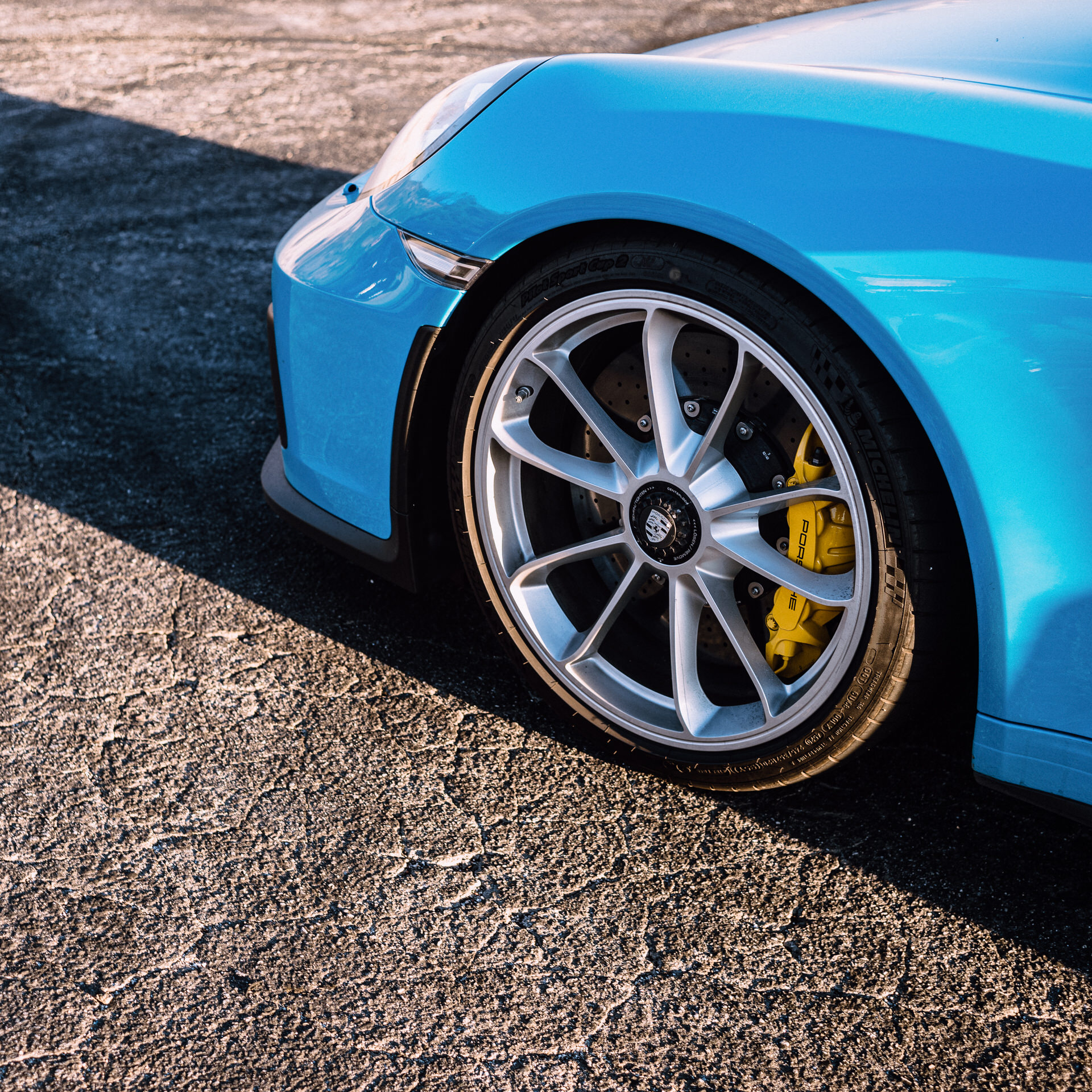
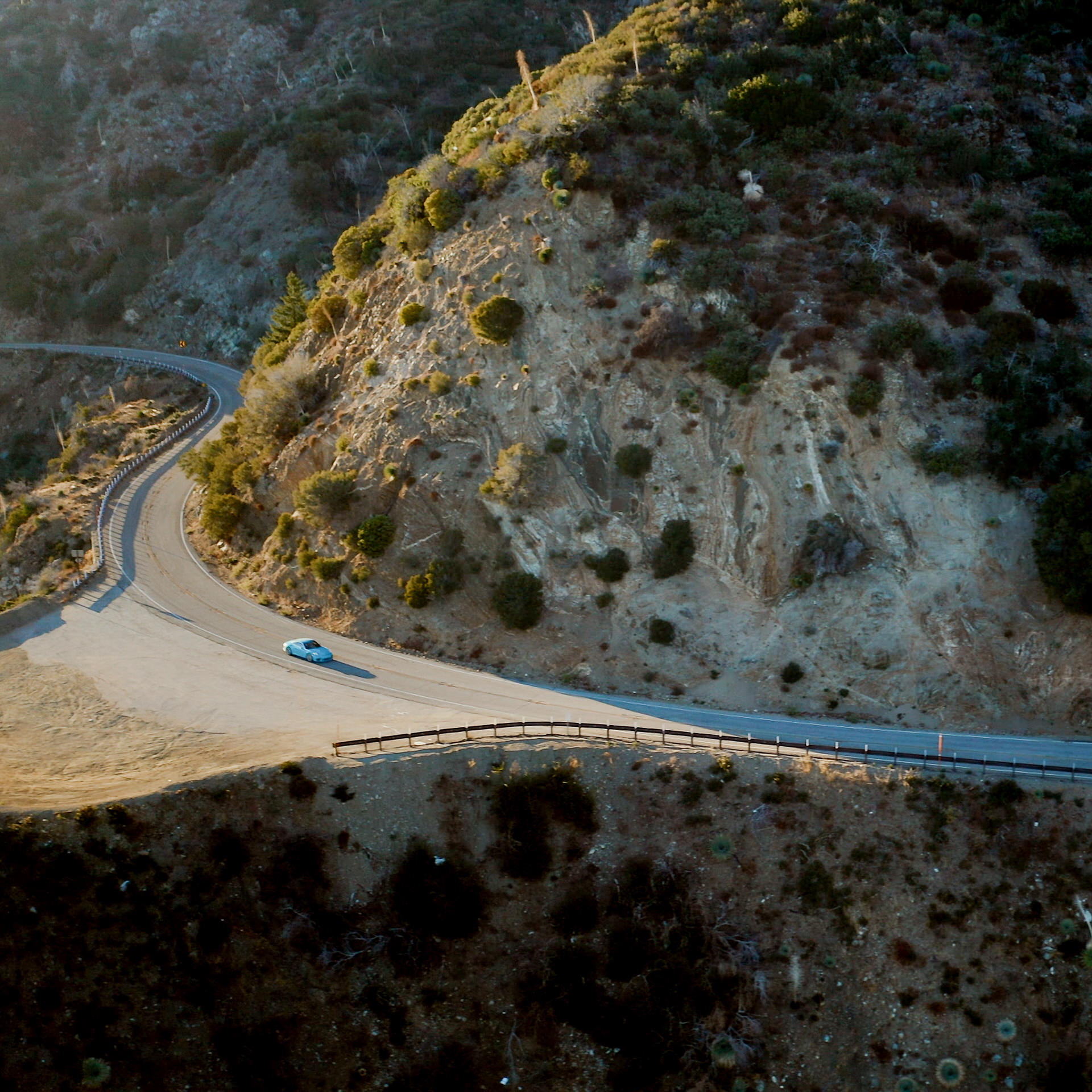
Between collaborating on the designs of signature gear with major brands like Jackson and Peavey, crafting his own line of guitar effects and strings with Horizon Devices, co-helming the hugely successful music software and sample library company GetGood Drums, and producing fantastic coffee as a partner in Golden Lantern Coffee Roasters, Mansoor is the kind of multi-hyphenate that’s fueled by passion rather than sheer ambition. He’s even recently thrown his hat into the world of automotive media with a channel called Reverse Gear, which was born simply so that he and his friend, automotive journalist Chris Rosales, could quite literally “drive all the cars.” Mansoor’s energy, enthusiasm, and dedication to a philosophy of experience-over-everything has earned him no small sum of friends in every one of the niche worlds he’s dedicated his time and talents to, and his is a trip and an approach to life that we here at C + T relate to tremendously.
In the following interview, Mansoor brings us into his world as an enthusiast and explores throughlines and philosophies, but also just nerds out with us about why he digs what he digs. It’s a charming and insightful look at the rich world that Mansoor has built for himself beyond the sick riffs and immense records that have earned him and Periphery so many fans.
You’re attracted to things that marry a classic form factor and spirit with modernity. It’s a throughline that runs between your Porsche 911 GT3 Touring, your latest hot-rodded Strat-style signature model Jackson guitar, and even your taste in watches. Can you explain your philosophy there?
The drummer in my band [Matt Halpern] always says “The way you do one thing is the way you do everything” and I think that definitely applies to me. There’s a common sentiment that we should always be improving on things, but oftentimes we forget or lose what made the last iteration of something special while chasing progress. That kind of recency bias can be particularly strong with the things that I’m into — being cars, music gear, watches, etc. You’ll see trends or quality-of-life improvements added to things through technology and engineering, and those can be really cool, but those updates are often seen as a wholesale improvement and that’s not always the case. Life is more complex than that and these things are so multifaceted – especially tactile things – and some of the charm that made previous iterations of something or older technology great gets overlooked because ultra-modern stuff is just blindingly cool. I get that and I love the idea of new tech, but I usually try to ground everything a little in the past. I’m a fan of saying “Hey, let’s not completely ignore what led us on this path” and celebrating the good things that tend to get lost with progress.
I also like finding the things that break away from the norm because at the end of the day, these are all businesses trying to make money, but when they find motivation that looks beyond whatever the trend is or whatever the tried-and-true way of beating quarterly sales numbers is, that’s when really interesting stuff gets made. You see the opposite in the watch world constantly, where a lot of these brands feel the need to always innovate or have a new model – even if it’s not really focused on the passion that would drive a watch design if they didn’t have to keep up with the market.
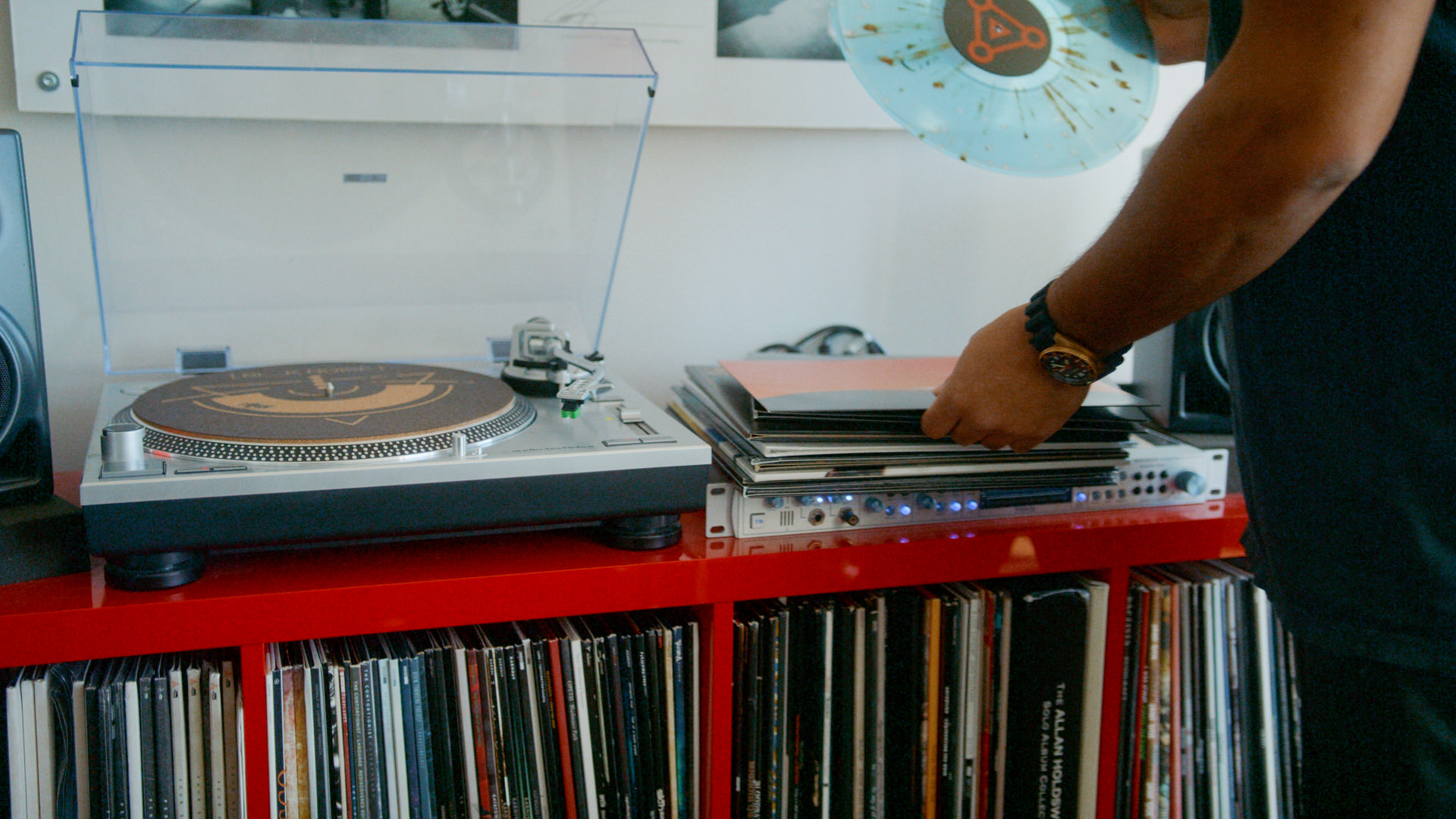
You’re also someone that’s focused heavily on experience. I’d say your interest in the car world, the watch world, and even the guitars you’re drawn to and help design has less to do with self-expression and fashion and more about the experiences they provide.
Everything that I do always ties back to the experience of it; the object itself is never the goal and the output is never the goal. It’s just experiencing whatever it is. When you understand that about me, it will explain why I have the things that I have. I’d say it’s even the same with the music I make. The output is the byproduct, the experience is what I treasure. With my bands, once the album’s done – and this is always true – I’ll listen to it once and approve it for mastering and I probably will not listen to that album again until release day, and that’s just so I can pretend that I’m a fan hearing it for the first time and try to experience it as they would. After that, I’ll probably never listen to it ever again other than to practice or for some utilitarian purpose. What was fun and important to me was getting in a room with my best friends and making music.
I remember I was on a podcast with Matt Farah before I had my 911 and I said I was looking for either a 911 GT3 Touring or a Honda Civic Type R. I was probably the only person in America who was cross-shopping those two cars. Matt thought I was insane, but what I wanted was a fun manual transmission car that’s fun to drive in the canyons, that’d be good to drive around town every day, and that won’t lose a dollar if I put miles on it. Those are two cars that I think fit that description really well. The brand, the price, the panache – none of that really comes into play. I don’t care what people think of me. Honestly, I think the Civic Type R from the 8th generation was kind of an ugly car, and it’s not my favorite car to be seen getting in and out of, but that doesn’t affect my decision. Between the two, I prefer the GT3 Touring and ended up with the right choice, but I would’ve been just as happy and I would’ve gotten the experiences I wanted from the Civic Type R because it’s a phenomenal car – and I mean that without any irony.
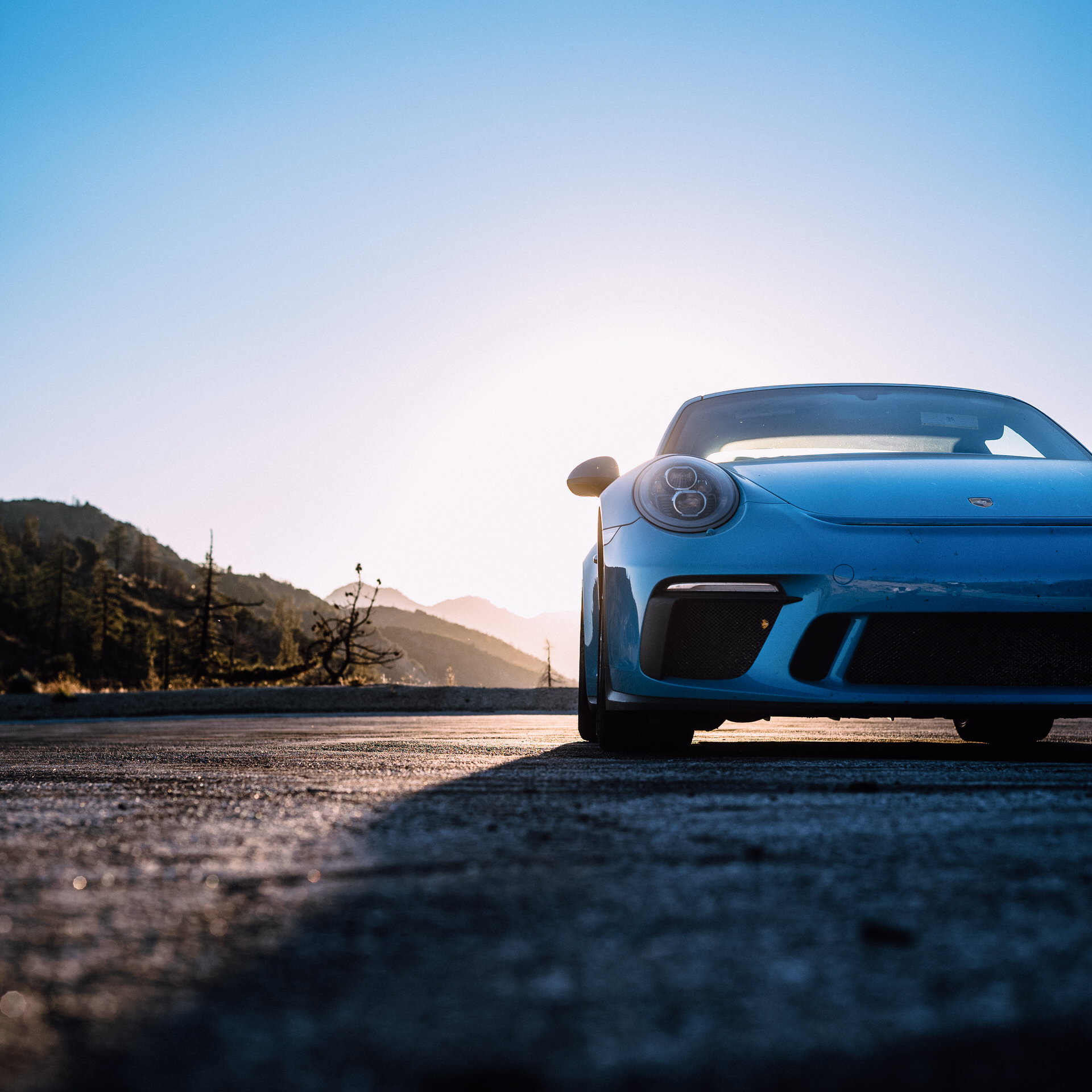
Despite that, you own and are known to frequently push the hell out of two serious supercars, that 911 GT3 Touring and a McLaren 765LT Spider. Something that’s interesting about both of those cars is that they’re made by marques that have really strong communities around them, and that’s the same with prog-metal and watches. These are all interests supported by wonderfully active – if highly opinionated – communities. How does engaging with others through those communities shape your world as an enthusiast?
The throughline that you’re looking for there is that these are all things that cater to nerds. Obviously a McLaren and a Porsche are both very cool cars, but neither are arguably the coolest cars you could get for the money; a Ferrari or Lamborghini both have way more cachet and brand recognition. The McLaren was certainly designed to be striking and beautiful, but also very functional; ultimately when you drive that car, it feels like you’re driving something that was designed by someone who said “This needs to drive a certain way first, and that is the most important thing. We’ll figure out how it sounds and we’ll figure out how it looks after we get it to drive how we need it to.” The most important thing with any of these cars is that when you’re driving it, it should evoke some emotions. The McLaren definitely does that for me and the same thing exists with the Porsche, and the latter can be traced back to the genius that is Andy Preuninger and the GT Division at Porsche. You know that Preuninger is a nerd about the details and when you have a community of people who are not just into cars, but into that aspect of cars, that’s where it’s special for me.
You should be allowed to love cars for whatever reasons you want – even the things I don’t relate to. Flexing, pure aesthetics, whatever. But finding a community of people that understand and genuinely love cars for the same reason I do – really just the driving experience – that ties us even closer because we are a weird, niche group. It’s the same way I feel when I find people that are into the specific type of prog-metal I’m into or fans of a band like Meshuggah. It’s like “Oh, cool! We can talk about this and you really get it!” It’s a very similar feeling when you find someone that’s into cars specifically for how they drive and that end of the experience.
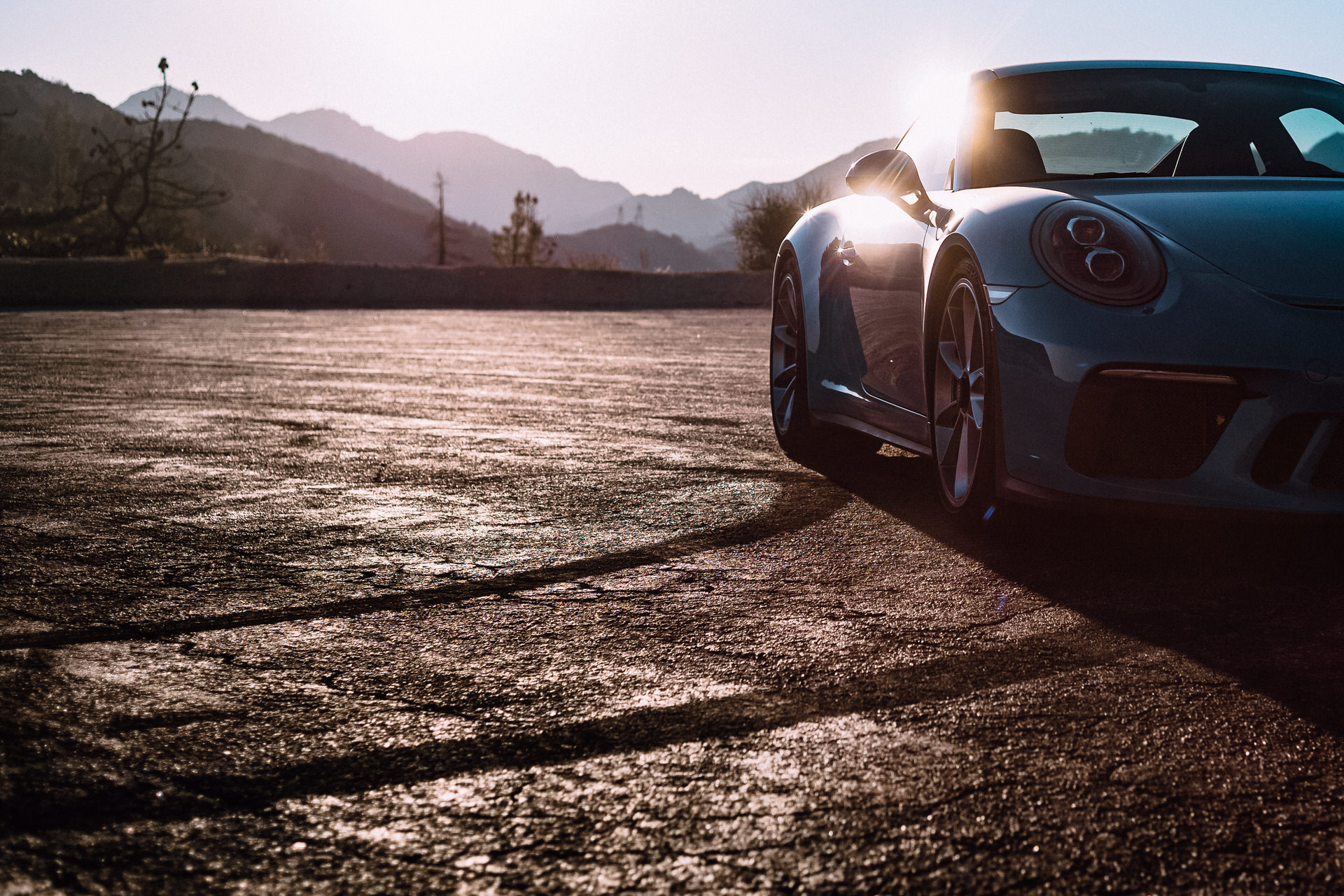
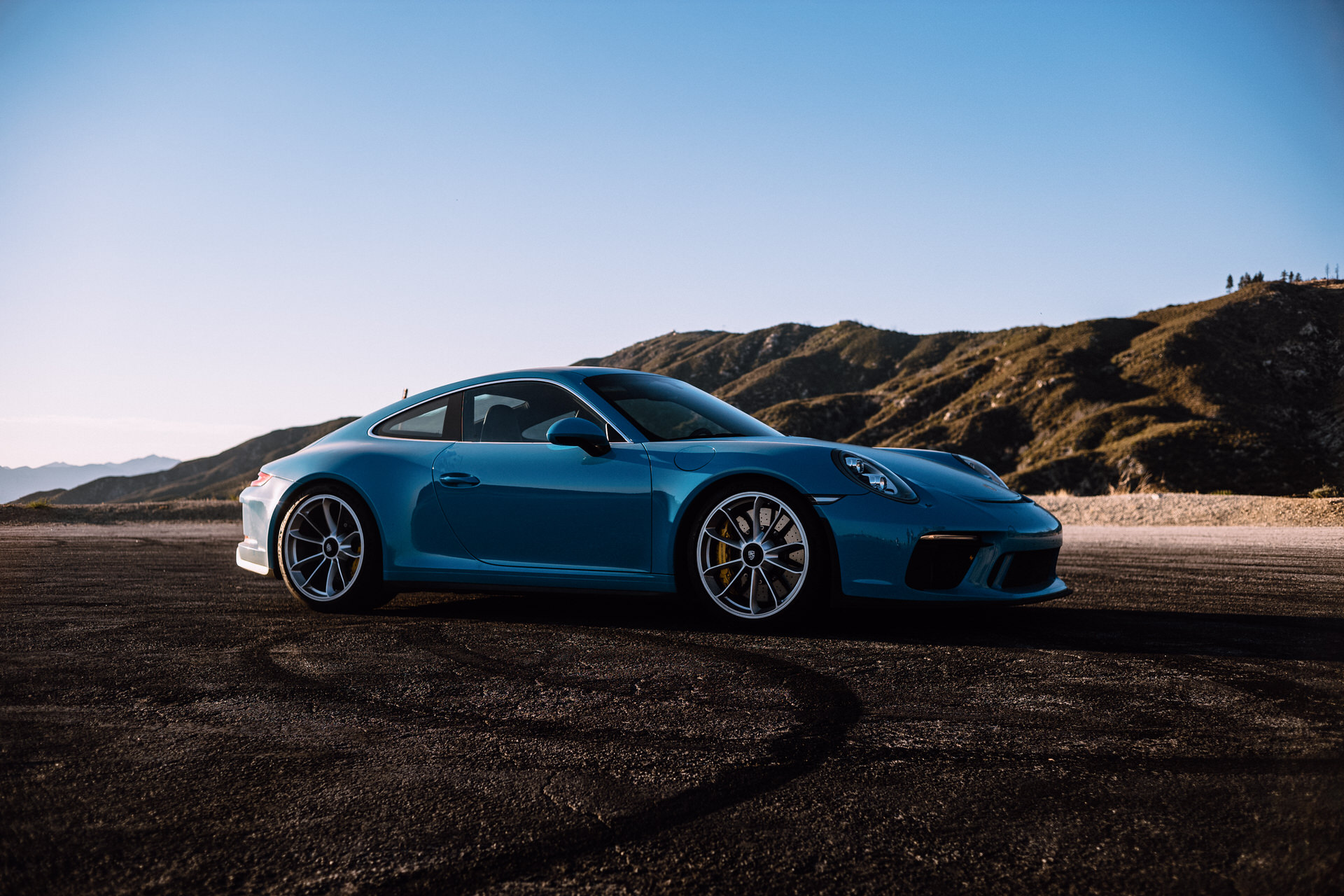
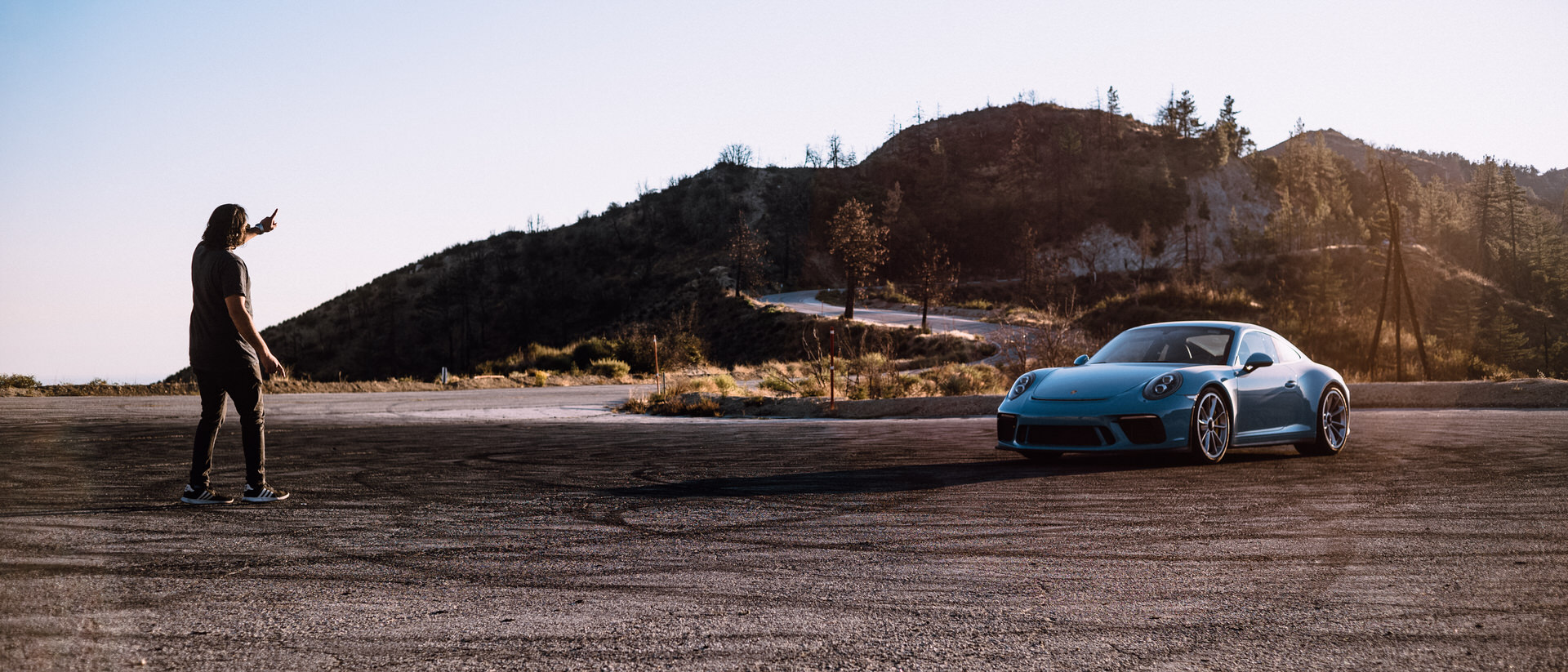
You seem to have a particularly strong bond with that GT3 Touring. Having ridden shotgun in it as you put it through its paces on Angeles Crest, it’s obvious you understand that car and its capabilities incredibly well. Are you a 911 lifer now? Has that car converted you into a Porsche devotee after living with it for a while?
I don’t believe in brands because brands make good cars and bad cars. I will say that Porsche tends to generally make good cars, but that can change. I feel like being a fan of a brand rather than a thing they’ve made is a little fickle and disinteresting. That said, I love that car in a way that I’ve never loved a car before.
I go through cars very quickly; sometimes I’ll only have a car for a few months. It’s part of the reason why I have worked hard to get press cars with Reverse Gear. I want to experience all these cars and I want to drive them in a way where I can truly understand them, more than just a test drive on the block or a run through the canyons, or a few laps on track. Because of that, I’m usually trying to run through these cars as fast as possible. The GT3 is unique in that it’s not interacting with that part of my brain at all; it’s just a car that I’m very grateful to experience. I just took it on a drive today after not being able to drive it for two weeks, and I took it to Race Service – which is literally just taking surface streets, nothing faster than 30 or 40 MPH – and all I could feel was this warmth in my chest of “I love this car.” The drive was completely unspectacular. I wasn’t going fast. I revved the engine once or twice because how could you not, just staying in like first and second gear? It was a drive that had no potential to fully experience what that car can offer or what makes it so special, and yet I still got the fizz on a boring, regular drive. That is an incredible thing. And there’s something about that car that transcends description, where I just feel this love for it and an affinity towards it, and I just can’t imagine letting it go.
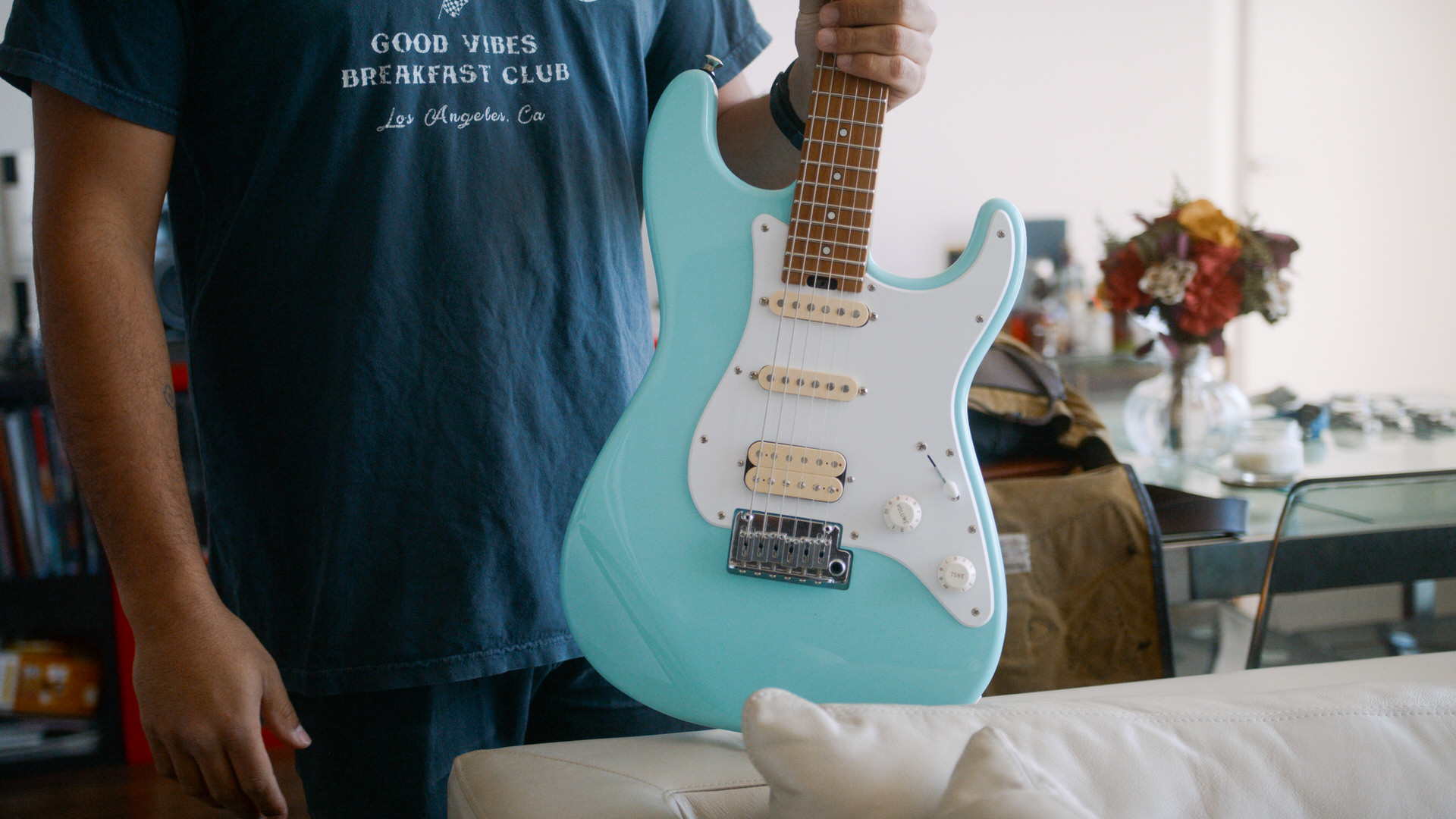
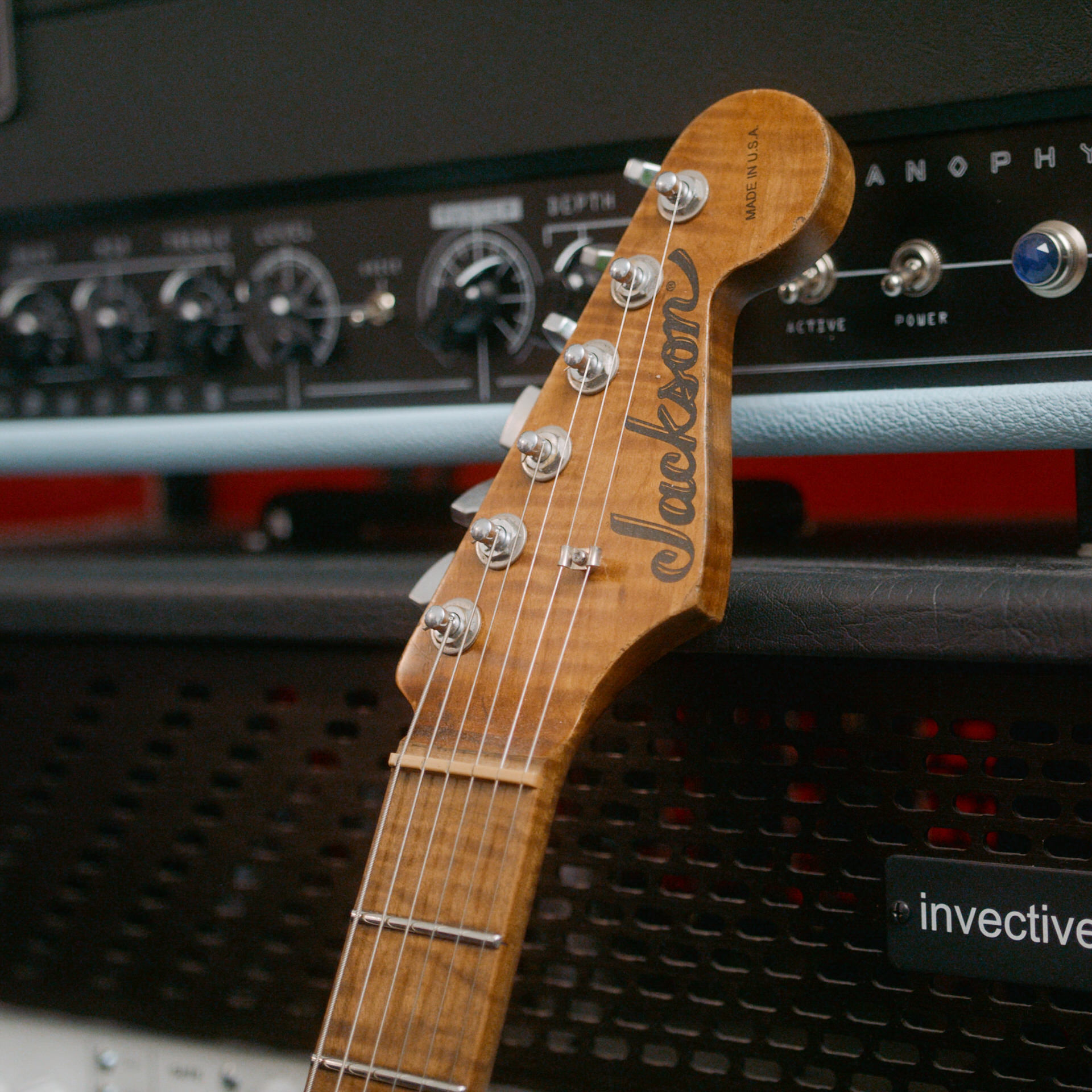
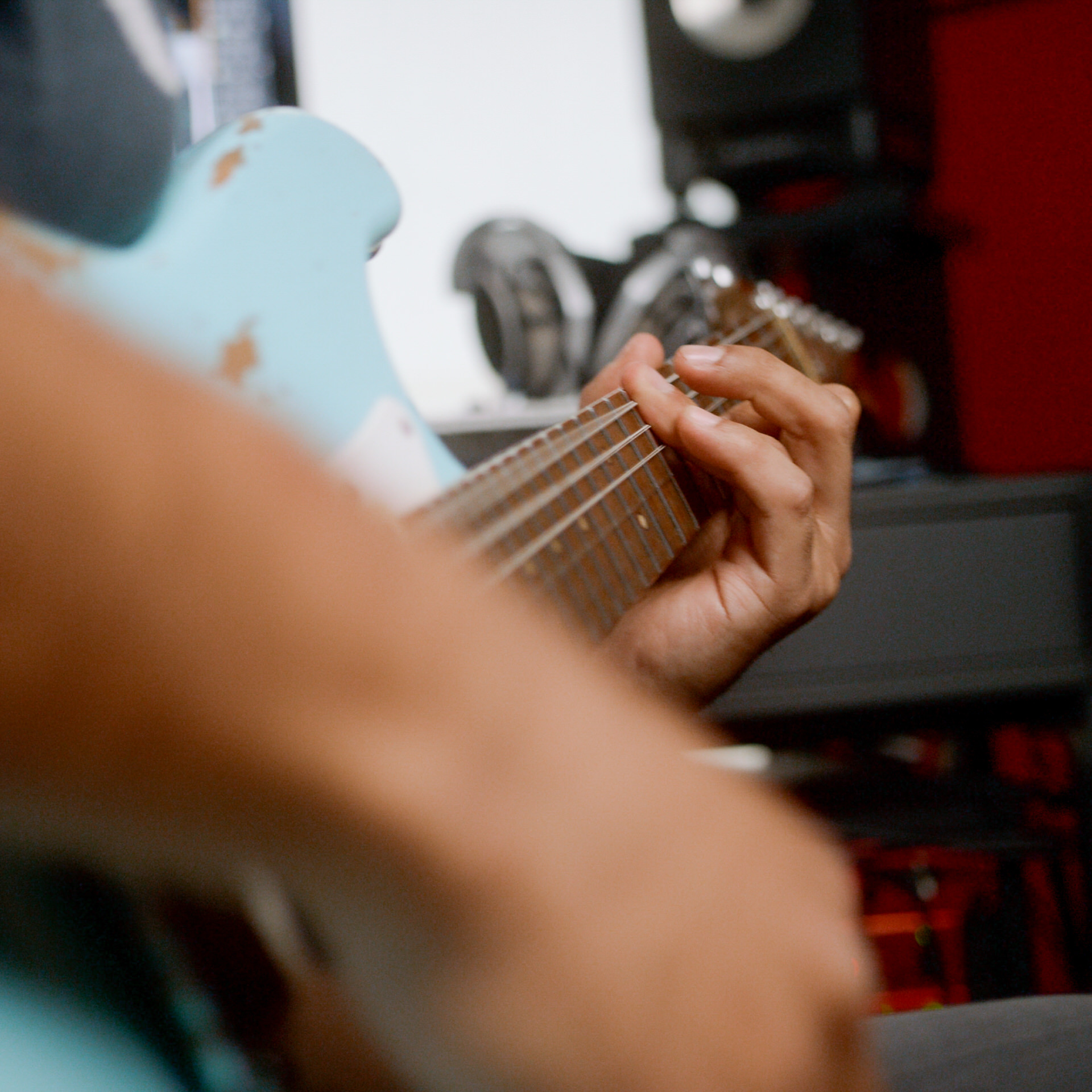
On the throughline of vintage form factors with modern appointments, you’ve had a few different signature model guitars over the years, including some hyper-modern ones, but your most recent signature model is a Jackson So-Cal based on a Fender Strat. It’s a pretty traditional looking guitar, but with some extremely high performance features – not unlike your GT3. How have you as a player and someone with a strong sense of aesthetics ended up where you’re at now with that type of signature guitar?
When I first started playing guitar, I had very little interest in Strats and Teles because they seemed like the default option, and I can’t stress enough how that’s exactly how I also felt about Porsche 911s when I started looking at sportscars. They were probably the car I cared the least about. Both of these things were everywhere and both felt like the default option, and I thought they were boring guitars and boring cars for boring people. But with my signature Jackson and the GT3 Touring, they have a shared charm and really changed my perception. Nolly [Getgood], who is Periphery’s ex-bassist, one of my best friends, my business partner in GGD, and a very important person in my life – and one of the best guitarists I know – had a Fender Custom Shop Strat I played when I was over at his place. There should have been nothing I liked about that guitar; it had a super round fretboard, really thin frets, low output pickups, but I thought it was incredible! I couldn’t wrap my head around it because it was really a slap-to-the-face about what I thought I knew about myself and I had what I liked about a guitar boiled down to specs at that point. It made me really question whether or not I really knew what I like, and it opened me up to stuff that I didn’t think I’d like very much before. Nolly’s guitar got me started thinking about taking the aspects that I liked about a traditional Strat and infusing it with the features that are important to me, and that’s essentially what my Jackson So-Cal is. I’m not supposed to call it a Strat, but it is totally a Strat.
I’m fortunate enough to have had lots of custom guitars and pretty wild instruments over the years and I got to experience a lot of different styles and construction types and different woods, and all these guitars ended up being my own version of market research. That taught me what I’d want from my ideal guitar. This SoCal model is ultimately a super Strat, which is a concept that’s been around for decades, but it’s advanced in the ways that it needs to be. It has my signature Bare Knuckle Juggernaut pickups in it, which have a hybrid magnet design that has never been done before, but they look like a set of standard pickups. That guitar is also one of the first production signature models that has a 20 inch fretboard radius – other than maybe an Allan Holdsworth model? There’s a lot of things on that guitar that were subtly done to make it modern where it counted, but it really fits tradition in some ways. Unless you really examine it, you might think it’s just a regular super Strat.
That relates back to watches in that your daily drivers are modern Rolex, but they’re the references in the current line up that still embody the brand’s heritage, particularly your ceramic Daytona, which is the modern Rolex I find most vintage owners still truly appreciate.
Watches are something I felt myself being drawn to for a while, but sometimes I push back on things I’m drawn to when I feel myself going down the rabbit hole. I didn’t quite get why people would spend thousands on a watch, but I was interested and I thought the tech of an automatic watch that essentially works on math and kinetic energy was really fascinating. Then oddly enough, Spencer [Sotelo], the singer in Periphery, gifted me a skeletonized Fossil watch he wasn’t wearing anymore. Despite it being a cheap watch, the skeletonization allowed me to see all the components in the movement working, and that was a little light bulb moment for me.
I understood with that watch what it was all about. Seeing the inner workings really changed how I thought about them. I started to do research and really started to understand watches. The tech side of it is why I like things like the Grand Seiko Spring Drive, which again, takes some old ideas and brings in some new concepts to see what can be created between them. I wear my Grand Seiko Lake Suwa a lot because it’s a shockingly accurate watch with a semi-traditional movement; it’s the GT3 Touring of my watches because to the average person, it looks like a normal Grand Seiko with a blue dial, but when the light hits it, you see why it’s called the Lake Suwa and you can see the waves in that amazing dial sparkle. It’s really one of the most understated watches you can get because unless you actually look at it closely or catch it in the right light, you wouldn’t even know. That’s one of my favorite things about my GT3 Touring: Nobody cares about that car except for car guys who love GT3s and know what it is. The people who get excited about it always call out that it’s a Touring and I love that it’s not the obvious option. For most, it’s hard to understand why you would spend more to have a car that turns less heads – but that’s what I love.
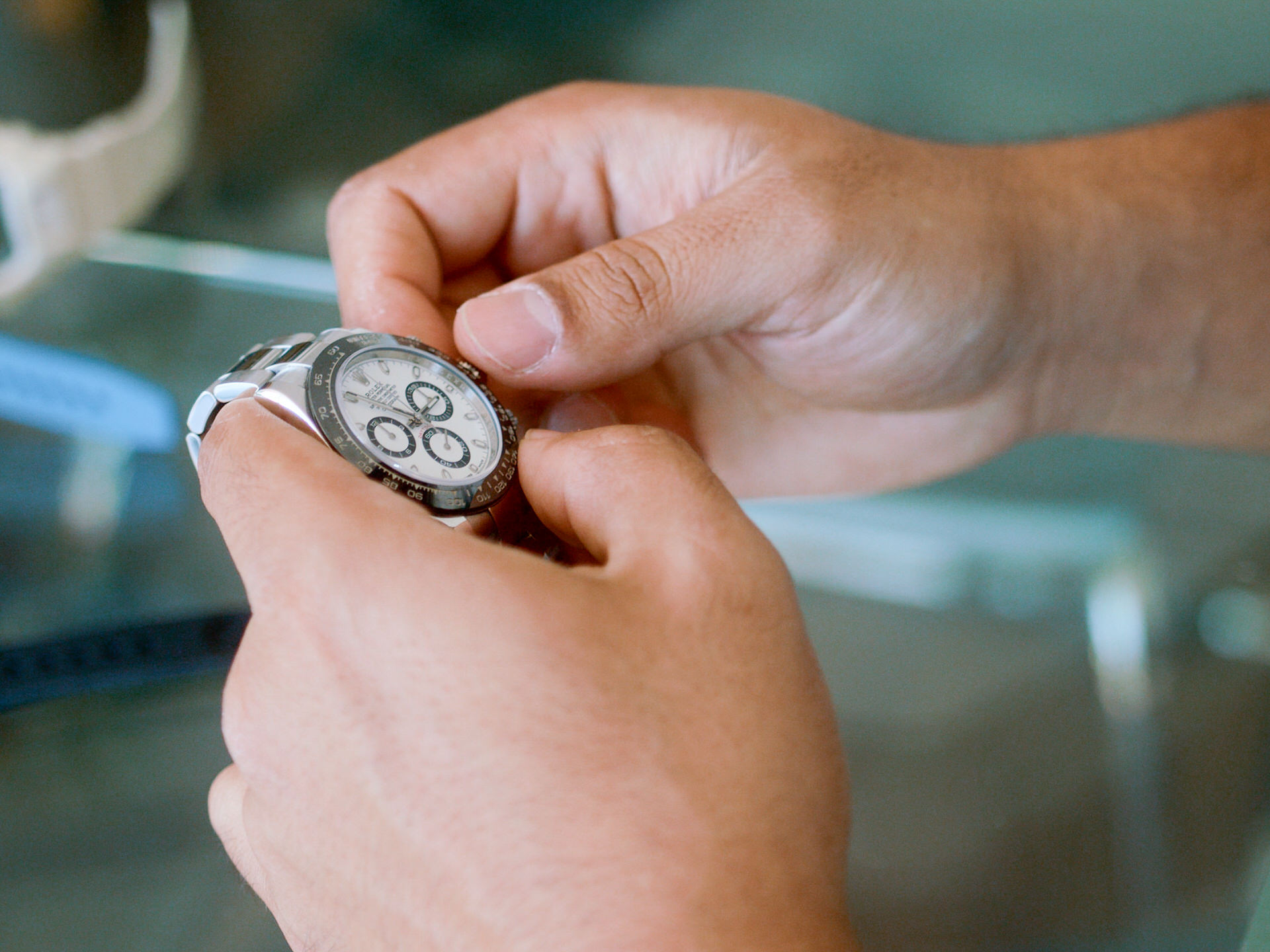
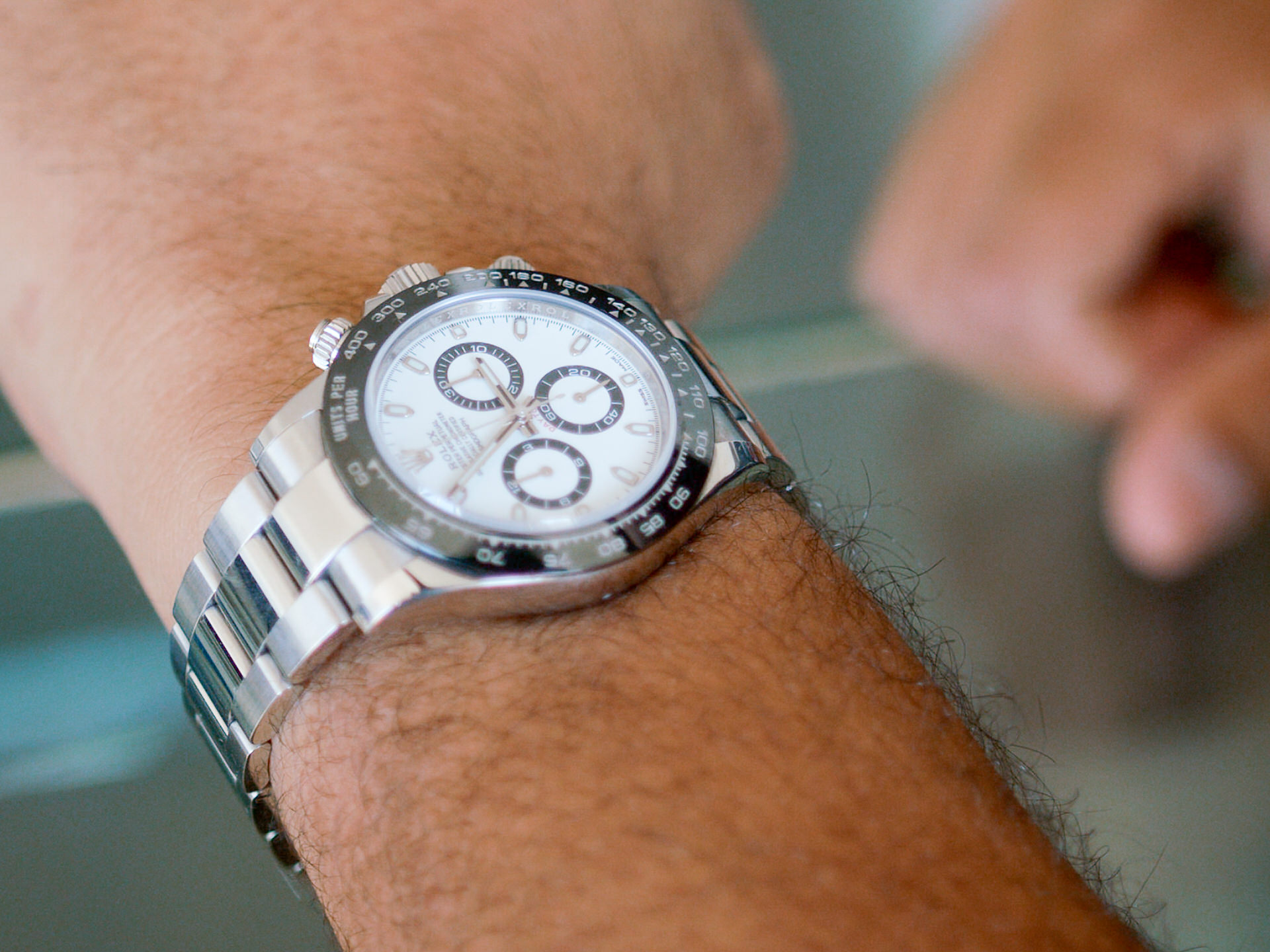
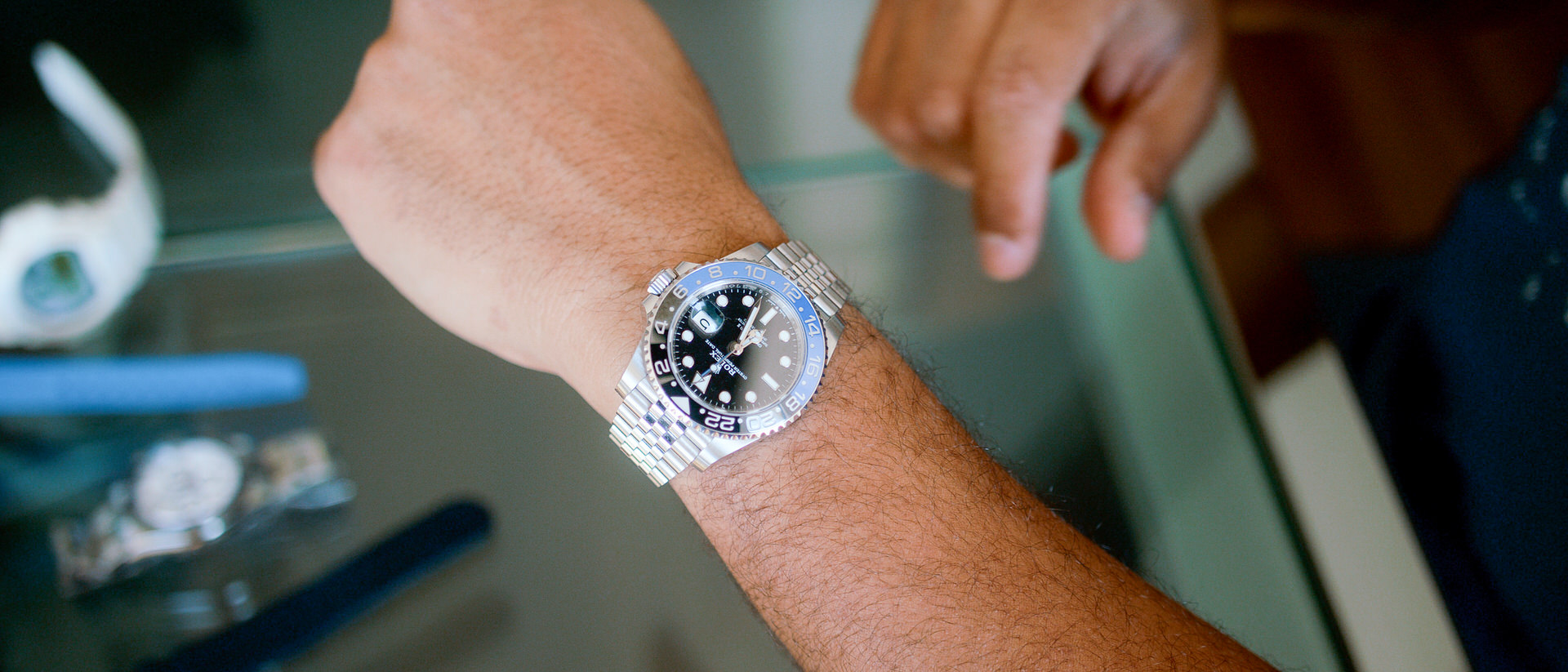
I love your story about trading a guitar for your Rolex Daytona.
I bought a guitar that was unobtainium and swapped it for a watch that was unobtainium. The guitar was a Blackmachine B2, and they were very in-demand guitars made by a guy named Doug Campbell. My playing them may be partially responsible for some of the hype around them, but they are genuinely phenomenal instruments. I was playing a Blackmachine B6 and found myself wondering “Why are these so good? What is going on with them?” At the time, the B6 was the only model I could afford and it was Doug’s entry level model; the B2 was his real deal model. Eventually, I had the money for a B2, but there were very few order slots open and Doug’s guitars were increasingly in-demand. Doug had saved some special pieces of wood over the years so he could build himself his ultimate B2, including a very rare flamed koa top – which I think was something like a hundred years old – a chambered mahogany body, and an old growth Brazilian rosewood fretboard, which is an endangered species and increases the value a lot because you can’t get it anymore. This guitar was the iconic Blackmachine for me, and in passing I said to Doug “Look, if you ever consider selling this one, please hit me up. I would like to buy it.” Of course he said “no,” but eventually he hit me up and asked if I was serious. I said “Absolutely. I’ll buy it right now.” And I did, and that was one of my favorite guitars that I’ve ever owned.
I used that B6 on a ton of stuff, but the same thing we see in the watch market started happening and the hype around Blackmachine meant they started to command crazy prices. I spent about $4k on mine, but I had someone offer me $30k for the guitar. I said “no” because I loved the guitar and used it, but it was worth so much that I found myself playing it less and less. The guitar sat in its case and I realized if I’m no longer even enjoying it, it was time to move on. At the same time, I noticed that the values of new Rolex Daytonas were starting to go up, and we all know how impossible it is to get a new steel Daytona from an AD. I’d always wanted a Daytona; I didn’t care that it was a Rolex, I just thought it was a beautiful watch. I wanted the white dial “panda” Daytona with the ceramic bezel and when I look at that watch, it gives me the same warmth in my chest that my GT3 does. I tried one on and found it to be the single most comfortable and well-fitting watch I’d ever worn on my wrist. I had that Wayne’s World moment where I said “She will be mine. Oh yes, she will be mine.” So I ended up trading that Blackmachine B6 to get the watch. I knew the Daytona was the grail for me after trying it on and I justified the trade by knowing that this was a watch that I would absolutely wear a lot, and I’ll be trading a guitar I barely touched anymore because I was afraid to use it. Technically, I’m only $4k in on the guitar, so it was essentially a $4k Daytona and if I was really an investor, I would’ve sold my Daytona a couple months ago, but I didn’t get it as an investment. Even if new Daytonas drop back to retail, I’ll still have done well enough that it’s a watch I can enjoy guilt free and I do.
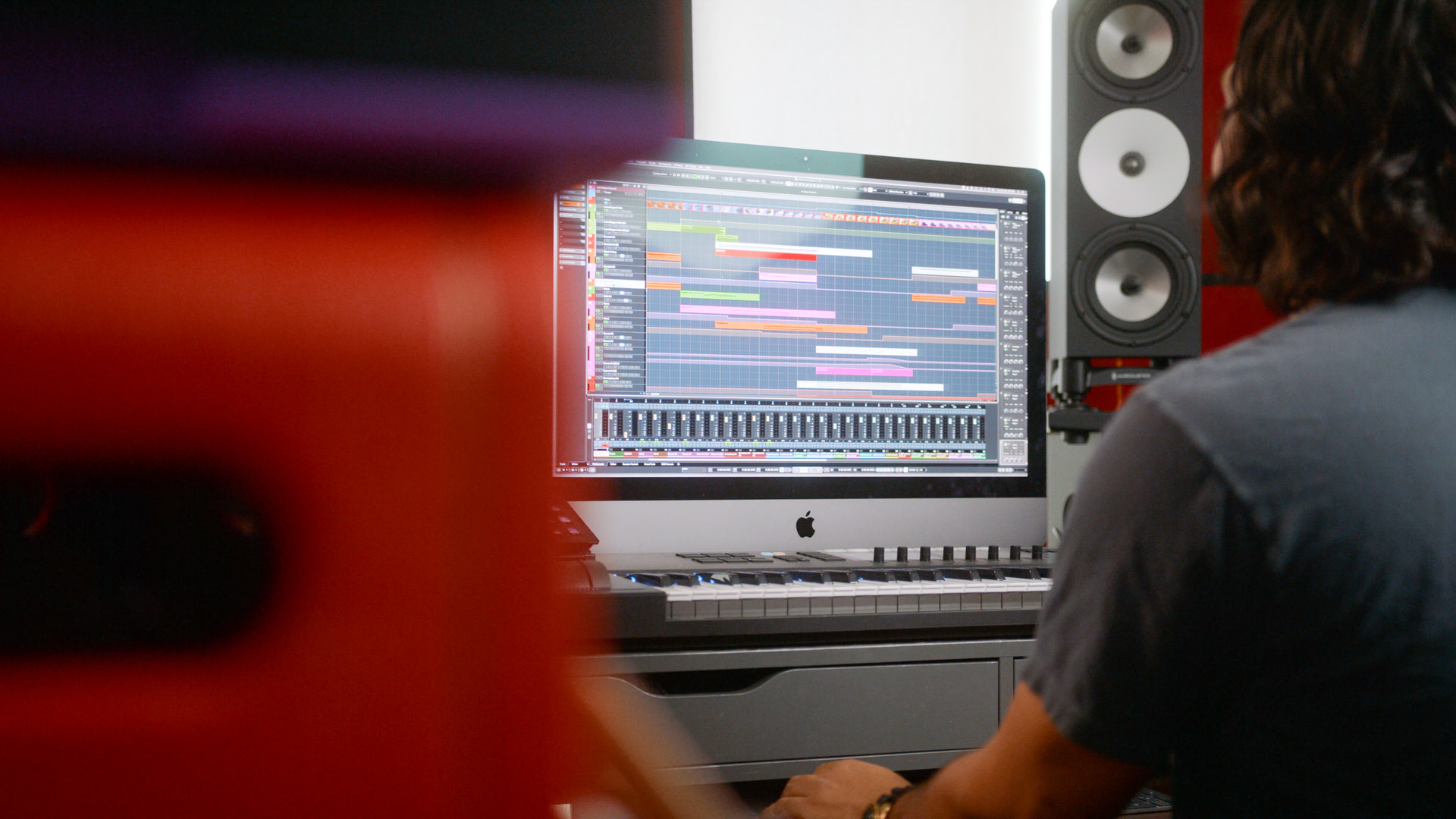
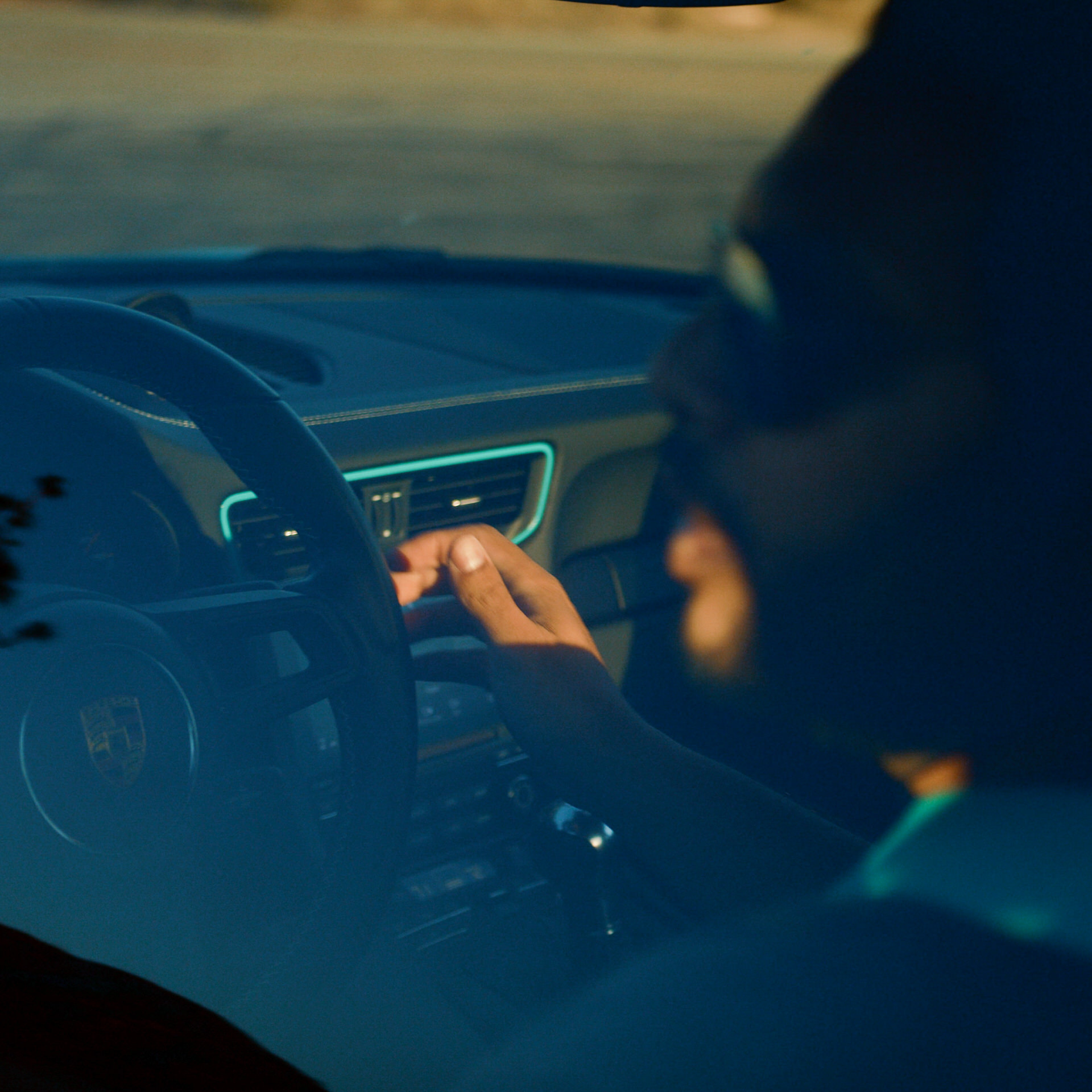
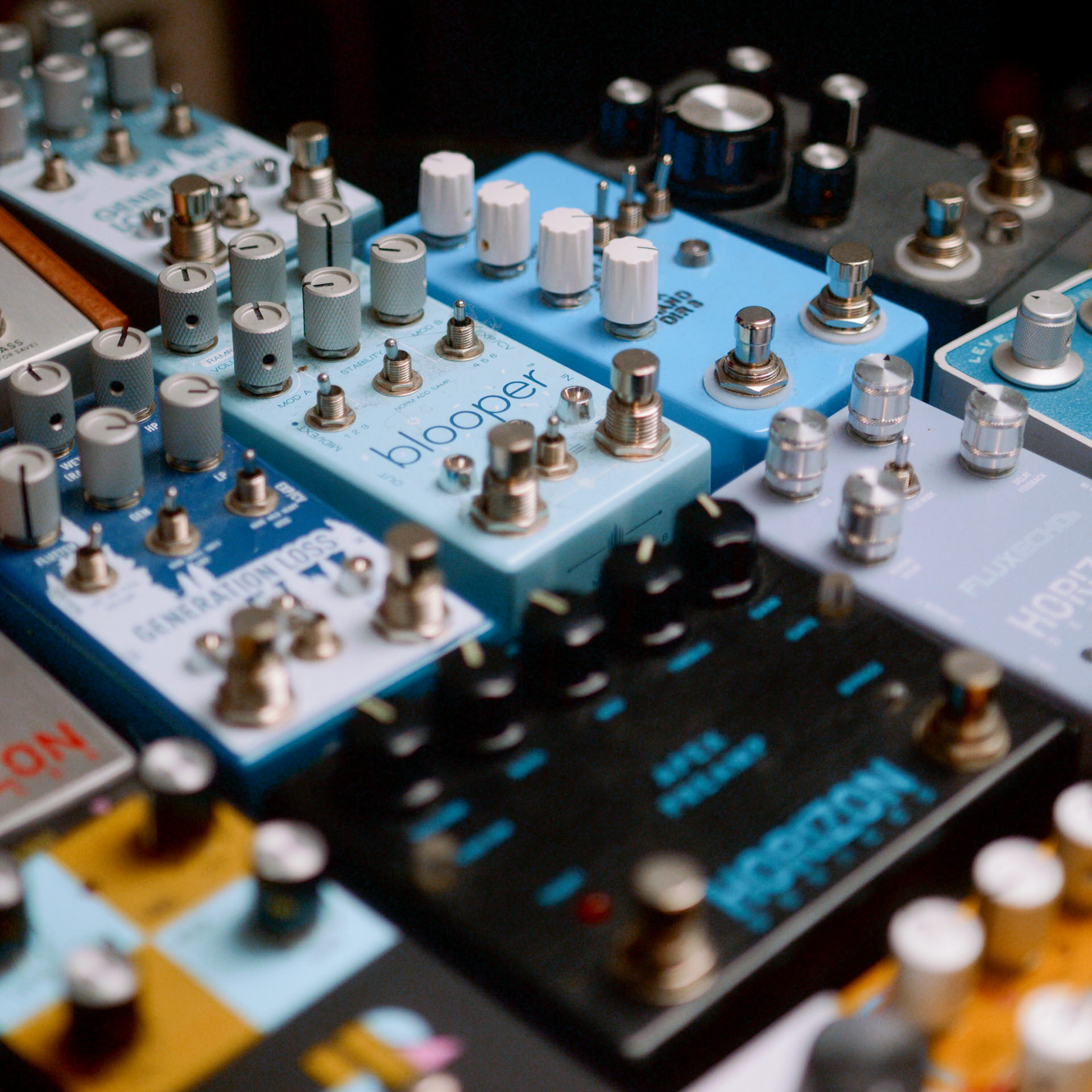
Is there a connection that you can make between your world as a car guy and your world as a musician and producer?
I really do think they’re very similar. There’s general love of music and general love of cars, but what I love about music is a very specific thing and I generally like a very specific genre, so there’s a lot of music fans that I have a tough time relating to, because we just won’t have that much in common. I think the same thing is true in car culture, where there is the car world and the love of cars is a very large space and there’s a lot of ways to appreciate and love them, and I would say I don’t actually interact with most of that. What I love about Good Vibes Breakfast Club is the group of people there seem to be passionate about cars in the same way that I am and we speak the same language. I’ve found my little subculture in the car world there, in the same way I found my subculture in music with the specific kind of prog-metal I make. I find myself in niche worlds and that happens in everything I love.
What keeps you inspired at this point. Periphery is putting out its sixth full-length record soon and you’ve always got a ton of plates spinning. I think a lot of people would say that you hustle, but at the same time it just seems like you’re enjoying the things you’re doing immensely.
That’s it. I don’t need the chase inspiration. I feel like there’s a ton of inspiration, it’s more which way am I going to choose to direct it? My biggest commodity these days is time. I wish I didn’t have to sleep so I could just do more of the things I wanted to do.
Something I find really inspiring about you as a multi-hyphenate is you always seem able to find the bandwidth to really explore your passions in a constructive way. Reverse Gear makes a great case for that. Do you have any advice for people that are looking to do more with their time in a constructive way like you do?
I feel like I’m the worst person to ask because I feel like I’m always hanging by a thread. I’ve had people tell me that I have too many hobbies, and they might be right. And anyone that I’ve talked to who’s in a similar situation to me with their pursuits is also hanging by a thread. But life is about experiences for me and I just want to experience as much of the things that are important to me as possible. And these are things that just make me happy, you know? Of course even fun hobbies take time and can cause stress, but it’s so satisfying and so gratifying. I’ve always been a bit of a dreamer and I’ve been fortunate enough to be rewarded eventually when I pursue a dream hard enough. The good news is that I hate taking vacations because I’d rather just be doing this.
With Reverse Gear, I remember having this concrete thought of “I just wish I could drive all the cars.” I want to know internally what all these cars were really like and what makes them different, and I want to compare my notes with people I respect and the journalists’ hivemind and see if we’re on the same page or not. And I want to find out what I’m like as a driver. I’ve wanted to do something about that for a long time, but I didn’t really know what that was until Reverse Gear happened. I still really can’t believe it is happening because it’s kind of a joke, but it’s a passionate joke and it’s allowing me to scratch that itch and answer those questions.
Find Misha Mansoor on IG at @mishaperiphery and check out Reverse Gear at @iamreversegear.
Photography by Chris Elkjar (@chriselkjar) & Daley Hake.
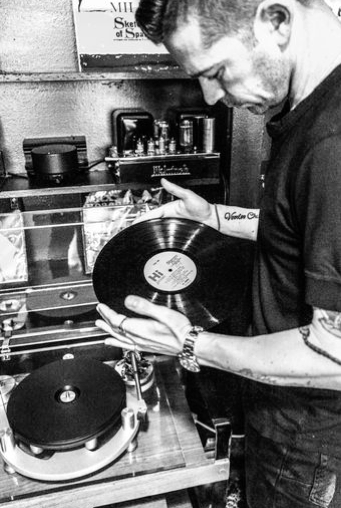
Check out 'Reference Tracks' our Spotify playlist. We’ll take you through what’s been spinning on the black circle at the C + T offices.
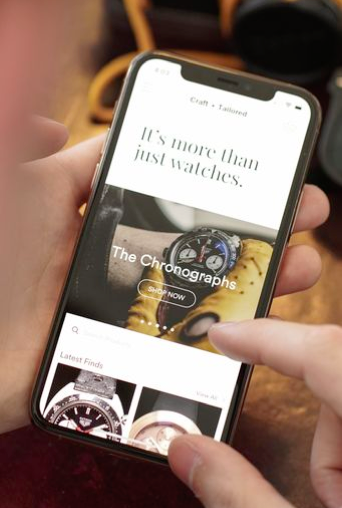
Never miss a watch. Get push notifications for new items and content as well as exclusive access to app only product launches.
Sign up for our newsletter to receive updates and exclusive offers